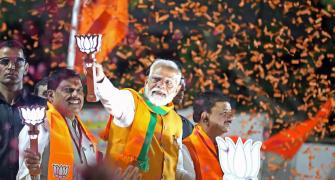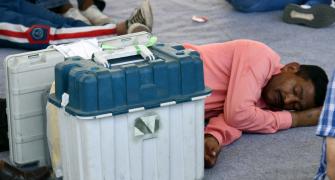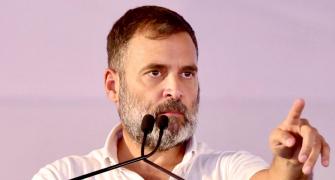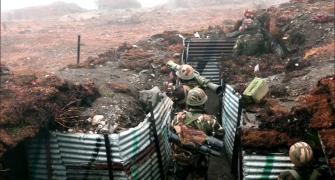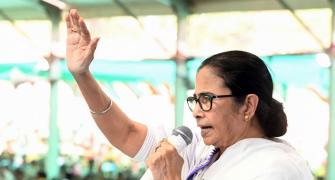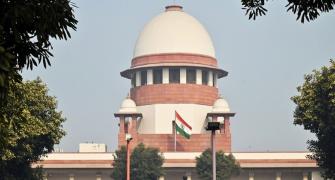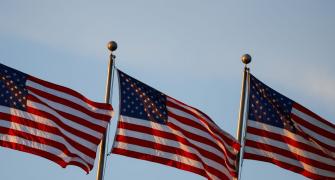India is likely to join a consortium involving Iran and Pakistan to build the much delayed $7.4-billion Iran-Pakistan-India gas pipeline, construction of which is targeted to begin in 2007.
At the end of the two-day Indo-Iran joint working group on the pipeline, New Delhi made a climb down from its earlier position that it would take delivery of gas at Indian borders and said it would go to the Cabinet for an approval for joining the project consortium once the three countries decide on the project framework by end of 2005.
"We will have no control over the price of gas if we were to merely sit on the fence and be just a buyer. We need to get involved with the project. Besides, we can ensure security of the pipeline in a much better way once we are part of the consortium operating the pipeline," a top official said.
The official said in all probability two pipelines would be laid, as a single 56-inch line would not be enough to meet the energy demand in India and Pakistan.
Talmiz Ahmad, additional secretary (international cooperation), ministry of petroleum and natural gas said India and Pakistan will by month end or early September appoint separate financial consultants to suggest project structure and address technical, financial, commercial and legal aspects to make the project safe and secure.
Iranian Deputy Oil Minister M H Nejad Hosseinian said a project structure, stating if the three countries would build separately the parts of the pipeline falling in their country or a consortium of Indian, Pakistani and Iranian companies along with international firms would build and operate the pipeline, would be in place by early November.
"Once there was agreement on the project structure between the three countries, the trilateral framework agreement would be finalised by the end of the current year," a joint statement released after the JWG said.
Ahmad said the two sides reviewed all aspects of the project and "we reiterated our commitment to carry forward with the project."
Hosseinian said the change of government in Iran would not alter the policy of export of gas to India -- in its liquid form or through a pipeline.
"This is a strategic project for Iran. I don't think there will be any change in policy as far as this project is concerned," he said.
He said India has indicated a requirement of 90 million standard cubic meters per day of gas while Pakistan needs another 60 mmscmd. "India and Pakistan have expressed higher requirement than the capacity of the 56-inch pipeline. The pipeline would have a capacity to carry only 120 mmscmd gas."
Designing the pipeline would take 12 to 18 months and actual construction would take between three-and-a-half years to four years, he said.
Asked about the security of the pipeline and safe delivery of gas, the visiting Iranian minister recognised terrorist attack as the gravest threat to the pipeline and said "security is a very important issue and we will address it in the framework agreement.
"I am sure that a solution to this problem will be found," he said.
An Indian technical team would visit Tehran in the third week of August 2005 to review the pre-feasibility report prepared jointly by National Iranian Gas Export Co and BHP
Billiton. The next meeting of the India-Iran special JWG would be held in Tehran by the end of September 2005.
"On the basis of the recommendations of the financial consultants, there would be a preliminary understanding on the preferred project structure by early November 2005. In this context, subject to mutual convenience, the Iranian minister of petroleum would visit India at this time," the joint statement said.
Indian officials said if India were to participate in the building of the pipeline, the cost of the project would be shared equally between India, Pakistan and Iran.
India, Iran and Pakistan have formed three separate JWGs -- India-Iran JWG, India-Pakistan JWG and Pakistan-Iran JWG -- and are presently engaged in bilateral discussions on the project.
The three separate dialogue is expected to culminate into a tripartite deal sometime by end of 2005 after issues with each of three countries are addressed to their satisfaction.

